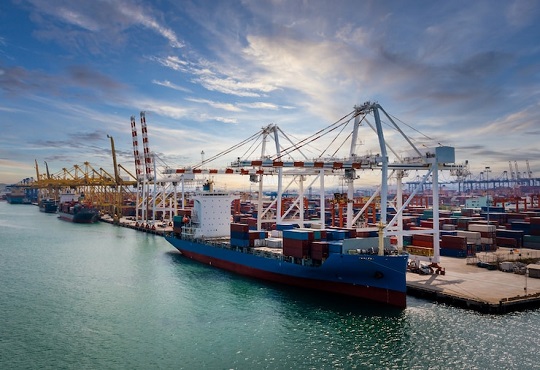IIT Madras Deploys India’s First Indigenous VTMS for Ports

- IIT Madras develops India’s first Indigenous Vessel Traffic Management System.
- VTMS tracks vessels, issues hazard alerts, and manages port traffic efficiently.
- System deployed at Vizhinjam Port, supporting Atmanirbhar Bharat and maritime safety.
Researchers at the Indian Institute of Technology Madras (IIT Madras) have developed and rolled out India's first Indigenous Vessel Traffic Management System (VTMS) for ports, a sophisticated software suite that tracks vessel locations, issues meteorological hazard alerts, and orchestrates traffic flow in ports and waterways.
This breakthrough innovation, entirely crafted by the National Technology Centre for Ports, Waterways and Coasts (NTCPWC) at IIT Madras, fulfills specifications set by the Union Ministry of Ports, Shipping and Waterways (MoSPW), marking a pivotal stride toward technological sovereignty in the maritime industry.
Also Read: IIM Nagpur Launches First Blended MBA for Working Professionals
The project, greenlit in 2020 with a ₹10 crore allocation from the Shipping Ministry, empowers the NTCPWC with complete oversight of the source code, databases, and core functionalities. As per an IIT Madras release, the system's scalability allows seamless upgrades to align with stakeholder needs and international benchmarks, fostering adaptability in a dynamic sector.
Deployed at Vizhinjam International Seaport Ltd (VISL) in Kerala, inaugurated by Prime Minister Narendra Modi in May 2025, the VTMS is already operational, enhancing navigational safety and efficiency at this cutting-edge Greenfield port. Negotiations are underway with two additional ports along India's western coast for similar implementations, signaling broader adoption.
By indigenizing VTMS, the initiative slashes costs associated with overseas procurement, bolsters national expertise, and aligns with the Atmanirbhar Bharat vision, ultimately fortifying India's maritime infrastructure against global supply chain disruptions and evolving trade demands.

